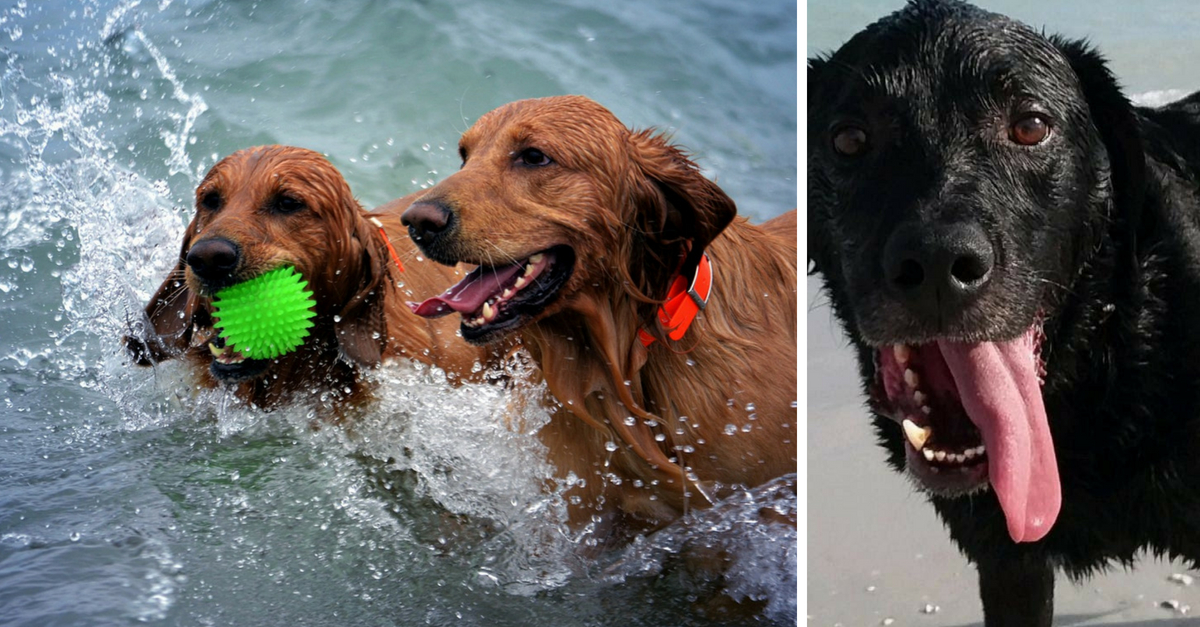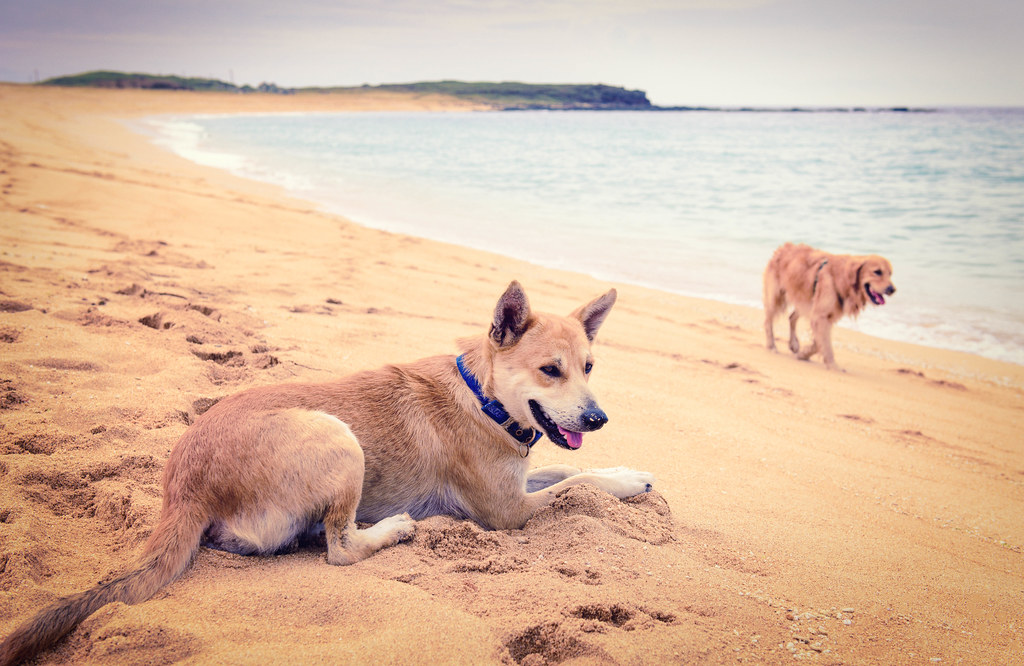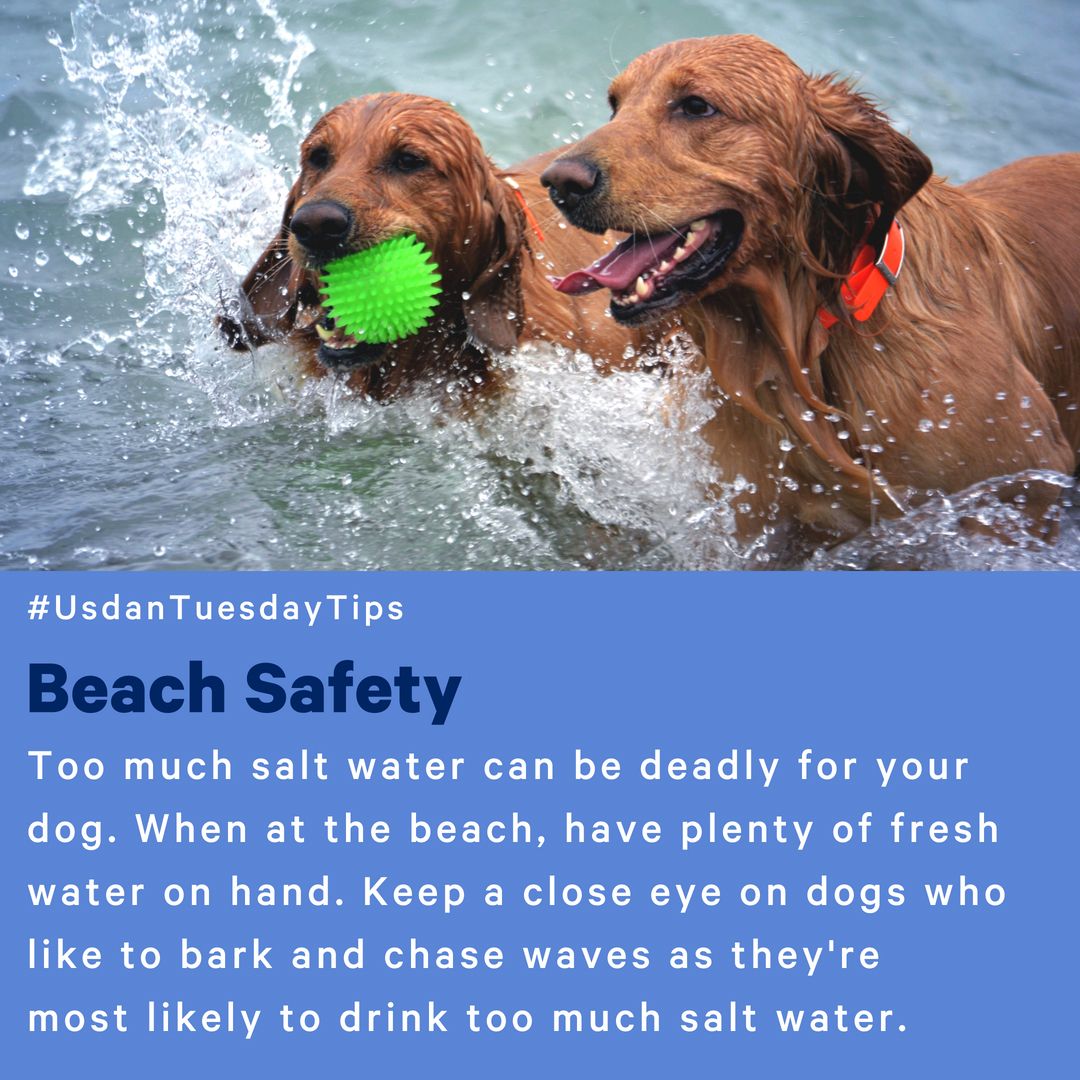
For one student at the University of Florida, a fun beach trip turned into a heartbreaking event. His dog, only six years old, was playing with him at the beach and in the water. After a few hours, the pup was obviously tired, but the student said he was also wobbly and had some diarrhea.
The dog continued to act strangely over the next few days and was rushed to the vet. The vet told the student that the dog was dehydrated and his brain was swelling due to high levels of sodium. This was from drinking too much salt water at the beach. The poor dog had a seizure and convulsions and had to be put down.

The student was devastated and wants to let everyone with dogs know the risk of playing at a beach with saltwater. Even if you bring your pet to the water and watch them to make sure they are only drinking fresh water, accidents can still happen. If your dog loves to play fetch and carry a ball or toy in the water, they can accidentally inhale a lot of saltwater.

Saltwater isn’t the only risk. Watch your dogs around salt dough ornaments, paintballs, table or rock salt or any foods high in sodium.

If your dog may have eaten any type of salt or drank saltwater, watch for these symptoms: vomiting, diarrhea, lethargy, excessive panting, wobbly walking, seizures, acting like they are drunk, tongue hanging out when not panting, or muscle tremors. If you notice any of these behaviors, take your dog to an emergency vet immediately. Don’t wait.

If you bring your dog to the beach with saltwater and they won’t listen to you when you pull them away from the water or you notice them drinking it, do not take them back to the beach. Make sure they drink fresh water only.

Please SHARE this article with any dog owners to keep their pups safe during these times when many people head to the beach with their dogs! Remember to watch for symptoms of saltwater poisoning on other dogs while you’re at the beach too.
